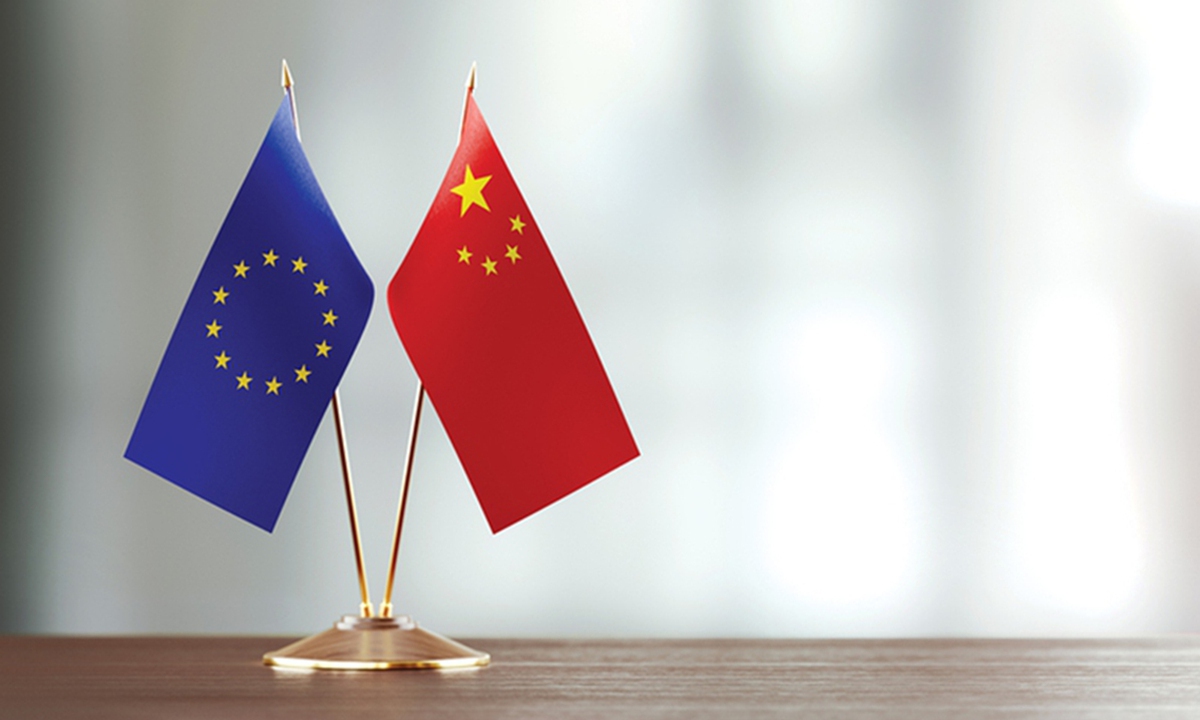
China EU Photo: VCG
China and the EU, two of the world's largest economic powers, should jointly tap into huge cooperation opportunities along their aligned pursuit of clean energy and de-carbonization, instead of letting trade protectionism get in the way, an industry observer told the Global Times.
The comment came amid an ongoing dialogue between China and the EU on the energy sector in Beijing running from Wednesday to Friday, which is co-chaired by EU Commissioner for Energy Kadri Simson and Zhang Jianhua, head of China's National Energy Administration.
They will exchange views on the global energy situation and energy security and both sides' efforts to advance the clean-energy transition, according to a post on the European Commission's website.
The energy dialogue was established in 1994, and it was deepened and intensified by the 2019 joint statement on the implementation of China-EU cooperation.
Calls for strengthening bilateral cooperation in the energy sector are growing at a moment when the EU is reportedly considering an investigation of wind power products from China in an aim to boost the EU's own wind industry.
Brussels is considering whether to investigate China's use of subsidies to promote the country's wind turbine manufacturers, the Financial Times reported over the weekend, citing an EU official.
The EU started an anti-subsidy investigation of Chinese-made electric vehicles in September, which drew strong opposition from Chinese authorities and industry bodies.
A source in China's wind power industry, who asked to remain anonymous, told the Global Times on Thursday that "if the EU really launches the countervailing investigation, it will not have a major impact on the domestic wind power industry in the short term."
Instead, the EU will face negative results because its energy transformation will drag on, the insider said, and it's unrealistic for the bloc to achieve its ambitious targets by solely relying on its domestic industry.
The EU targets a 55 percent cut in greenhouse gas emissions by 2030 and net zero by 2050.
"China has been on a rapid transition path toward the new-energy sector in recent years, and the scale effect it features has enabled competitive prices for Chinese-made new-energy products ranging from electric cars to wind turbines," the insider noted.
Driven by the vitality of global growth in the post-pandemic era and the energy crisis triggered by the Russia-Ukraine conflict, China and Europe have a similar need to develop green industries and clean-energy technologies, which will allow the two sides to establish a green economic and trade relationship based on huge room for complementarity, according to Yu Hongyuan, a professor and director of the Institute for Public Policy and Innovation at the Shanghai Institutes for International Studies.
Cui Hongjian, a professor with the Academy of Regional and Global Governance at Beijing Foreign Studies University, told the Global Times on Thursday that the EU should pay more attention to bilateral energy cooperation instead of following a biased ideology toward China and engaging in protectionism.
"The EU is currently randomly interpreting 'fair trade,' which is defined by its own criteria, while shunning 'free trade,'" Cui said.
Simson made a speech at the North China Electric Power University on Wednesday. Speaking on opportunities for China-EU energy cooperation, Simson suggested that both sides seek exchanges on power systems, where China may integrate different regional market mechanisms, and work on coordination and early warning mechanisms of gas supply since the two are major gas importers.




